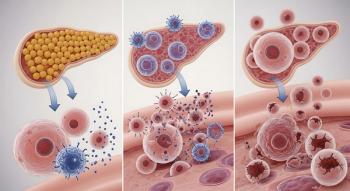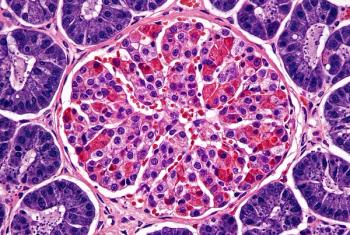
Nanoparticle Therapy has Potential to Reprogram the Immune System in Type 1 Diabetes
COUR Pharmaceuticals is about begin a phase 1b/2a study to assess a therapy for type 1 diabetes that prevents islet cell destruction and triggers a T cell response.
COUR Pharmaceuticals has received the okay from the FDA to begin clinical trials nanoparticle-based therapy that has the potential to address the underlying autoimmunity of type 1 diabetes, which affects about 2 million Americans. Type 1 diabetes is caused by the immune’s response to pancreatic beta cells.
The
“In preclinical studies to date, CNP-103 has demonstrated the ability to stop T1D disease progression while creating an enhanced pro-regulatory environment with reduced inflammatory cell activity,” Dannielle Appelhans, president and CEO of COUR, said in a
COUR’s technology uses biodegradable nanoparticles to encapsulate four recombinant proteins known to promote islet cell destruction: preproinsulin, GAD65, IGRP, ZnT8. CNP-103 is thought to induce tolerance to these proteins and prevent islet cell destruction, allowing for maintenance of insulin production.
The nanoparticles bind to immune cells called monocytes. These cells then travel to the spleen and liver, where they undergo apoptosis. The proteins are released and are consumed by antigen presenting cells, which produces a T cell response. Data from a study in mouse model of type 1 diabetes was published in
COUR has researching other potential therapies using this technology. The company currently enrolling patients in a phase 1b/2a double-blind, placebo-controlled, multicenter clinical study in myasthenia gravis, a rare autoimmune neuromuscular disease that weakens skeletal muscles by interrupting the communication between motor neurons and muscle fibers that is required to trigger muscle contraction.
The company also has released
CNP-104 led to a slowing of disease progression in liver stiffness on Fibroscan, reaching a statistically significant decrease on day 120 in the active arms compared with placebo. It also demonstrated a favorable T cell response in pathogenic CD4 T cell populations and tolerance inducing CD8 T cells. Drug related adverse events were mild, and there were no drug related severe adverse events.
Additionally, COUR has partnered with Takeda Pharmaceuticals for its program in celiac disease, which is currently enrolling in a phase 2b trial.
Newsletter
Get the latest industry news, event updates, and more from Managed healthcare Executive.























